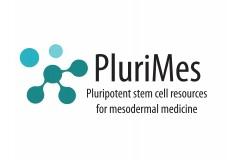
Submitted by M. Zappone on Thu, 24/11/2016 - 10:47
A consortium of 10 European partners have been awarded €6million by the European Commission for a research and development project focused on directing stem cells to become bone and muscle.
Pluripotent stem cells have the potential to generate any type of cell found in the body. They are generated and multiplied in the laboratory. By harnessing the capacity of pluripotent stem cells to produce functional cell types with precision and at scale, researchers hope to enable new treatment modalities for degenerative diseases. The PluriMes project is specifically targeted at therapies for muscle, bone and cartilage.
The project combines the expertise of eight academic and two industrial partners to bring together stem cell experts, genetic engineers, developmental biologists, cell therapy pioneers, bioengineers and specialist SMEs in a cross-disciplinary collaborative effort.
|
Austin Smith |
University of Cambridge |
UK |
|
Giulio Cossu |
University College London |
UK |
|
University of Rome |
Italy |
|
|
Pluriomics BV |
The Netherlands |
|
|
Sharon Louis |
STEMCELL Technologies SARL |
France |
|
Techniche Universitaet Dresden |
Germany |
|
|
University of Sheffield |
UK |
|
|
Christine Mummery |
Academisch Ziekenhuis Leiden-Leids Universitair Medisch Centrum |
The Netherlands |
|
Ecole Polytechnique Federale de Lausanne |
Switzerland |
|
|
Centre Européen de Recherche en Biologie et Médecine |
France |
PluriMes is supported through the European Commission’s Framework 7 HEALTH research programme and Coordinated by Professor Austin Smith from the Wellcome Trust – Medical Research Council Cambridge Stem Cell Institute at the University of Cambridge.
PluriMes is part of a larger European effort
The European Commission’s HEALTH research programme recently granted a total of 42 million euros for stem cell research projects.
PluriMes aims to build close links with all of the consortium funded under the EC programme and has already established closer, collaborative relations with three of the other projects. A common theme in these projects is the focus on understanding the mechanisms of self-renewal of differentiation into mature functional cell types suitable for various cell-based therapeutic applications.
- HumEn, aproject aimed at developing glucose-responsive, insulin-producing beta cells for future cell-replacement therapy in diabetes;
- Neurostemcellrepair, a project aimed at taking human stem cells through the final steps toward clinical application in cell replacement therapy for neurological disorders such as Parkinson's Disease; and
- ThymiStem, a program to develop stem cell approaches to boosting the immune system by repairing the thymus, a key organ for producing important immune cells.
These four consortia will collaborate and coordinate training and outreach activities, sharing relevant basic knowledge and benefitting from existing synergies across the projects.
All of these stem cell research projects will collaborate with EuroStemCell, Europe’s stem cell hub, to provide reliable, independent information and road-tested educational resources on stem cells and their impact on society.

